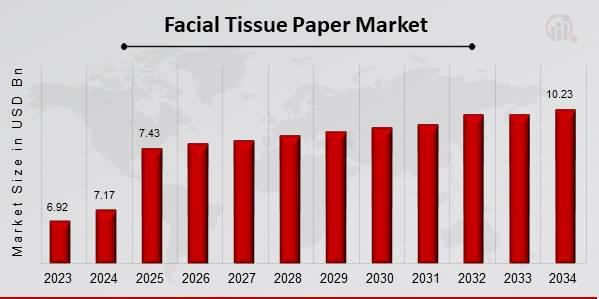Policy Impact on the Expansion of the Japan Solar Inverter Market
Japan Solar Inverter Market: Growth, Trends, and Outlook
The Japan solar inverter market is experiencing a steady expansion, driven by the country’s commitment to renewable energy, strong government policies, and technological advancements. As Japan transitions toward a low-carbon economy, solar energy has emerged as a key pillar in its energy strategy. In this context, solar inverters, which are crucial components that convert direct current (DC) generated by solar panels into alternating current (AC) for use in homes and businesses, have gained significant market attention.
Market Overview
Japan is one of the most advanced solar energy markets in the world. Following the Fukushima nuclear disaster in 2011, the Japanese government shifted its focus toward renewable energy, significantly increasing solar power adoption. With this shift, the demand for efficient and reliable solar inverters has surged across residential, commercial, and utility-scale applications.
The Japanese solar inverter market includes string inverters, central inverters, and microinverters. Among these, string inverters are widely used in residential and small commercial installations due to their cost-effectiveness and moderate capacity. On the other hand, central inverters are preferred for large-scale utility projects, where high power output is required.
Market Drivers
1. Government Policies and Incentives
One of the major growth drivers is Japan's government policy supporting solar power adoption. The Feed-in Tariff (FiT) program has historically incentivized solar installation by guaranteeing above-market rates for electricity fed into the grid. Although recent reforms have shifted the focus from FiTs to auctions and self-consumption models, the government continues to support solar deployment through subsidies and tax incentives.
2. Rising Energy Costs and Demand for Energy Independence
Japan is heavily reliant on energy imports, which makes its economy vulnerable to global energy price fluctuations. This has spurred demand for decentralized energy solutions like solar PV systems, with inverters playing a critical role in ensuring efficient energy use. The shift toward self-sufficiency has encouraged households and businesses to invest in solar systems.
3. Technological Advancements
Advances in inverter technologies, including smart inverters and hybrid inverters integrated with battery storage, are reshaping the market. Smart inverters offer grid support functionalities, remote monitoring, and enhanced safety features, making them increasingly popular among end-users. Japanese manufacturers are known for innovation, and many local companies are focusing on R&D to stay competitive.
4. Growing Interest in Energy Storage Systems (ESS)
As solar energy generation becomes more prevalent, the integration of energy storage systems has gained prominence. Hybrid inverters, which manage both solar and battery inputs, are in growing demand. Japan’s emphasis on resilience—especially after its experience with natural disasters—has also accelerated ESS and hybrid inverter adoption to ensure energy continuity during grid outages.
Challenges
Despite its strengths, the Japanese solar inverter market faces several challenges. One of the primary concerns is the saturation of the solar market in certain regions, especially where rooftop installations have already reached high penetration levels. Additionally, changes in government policy—such as the reduction of feed-in tariffs—have shifted the financial equation for some investors, impacting the pace of new installations.
Another challenge lies in the aging infrastructure of earlier solar installations. Inverters typically have a shorter lifespan than solar panels, leading to a growing need for replacement or upgrade of older units. This, however, also presents an opportunity for aftermarket sales and service providers.
Competitive Landscape
Japan’s solar inverter market is competitive, with both domestic and international players. Leading Japanese companies such as Omron, TMEIC, and Tabuchi Electric have established a strong presence. At the same time, global players including SMA Solar Technology, Huawei, and Sungrow have made inroads into the Japanese market, leveraging advanced technologies and competitive pricing.
Strategic partnerships, mergers, and acquisitions are becoming more common as companies aim to strengthen their market share. The focus is increasingly on product differentiation, after-sales service, and digital capabilities such as app-based monitoring and predictive maintenance.
Future Outlook
The outlook for the Japan solar inverter market remains optimistic. The government’s commitment to achieving carbon neutrality by 2050, combined with a growing focus on decarbonizing the power sector, ensures sustained demand for solar infrastructure, including inverters. Innovations in artificial intelligence, IoT integration, and energy management systems are expected to further evolve the inverter landscape.
Moreover, as Japan moves toward greater electrification of transportation and heating, the role of solar power in the energy mix will only expand. This will drive further investment in inverter technologies, especially those that can handle complex energy flows between solar generation, storage, and consumption.
The Japan solar inverter market stands at a crucial juncture, propelled by supportive policies, technological innovation, and a national agenda focused on sustainability. While challenges exist, including market saturation and evolving regulatory frameworks, the opportunities outweigh the risks. As Japan continues its energy transition journey, solar inverters will remain integral to enabling efficient, resilient, and smart energy systems across the country.
Related Reports:
New Packages and Materials for Power Devices Market
Liquefied Petroleum Gas (LPG) Market





